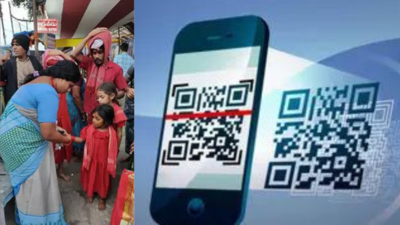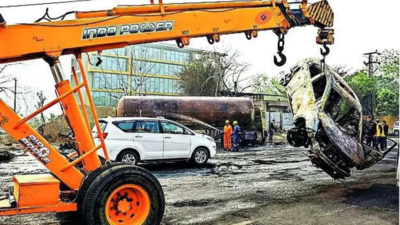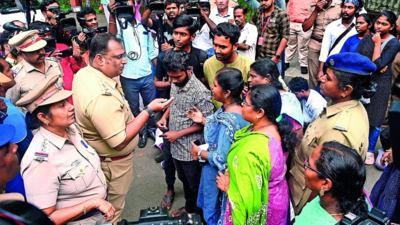
NEW DELHI: The Vijayawada District Administration used QR code-enabled wristbands to reunite 10 missing children with their families during the Bhawani Deeksha Viramana event . By using these wristbands for children under five, the administration ensured swift and efficient tracking of separated children. Approximately 60 teams from the Integrated Child Development Services (ICDS) department were stationed at critical locations, including railway stations, bus terminals, and city entry points.
Their mission was to identify every child entering the city and tie a QR-coded wristband to them. According to ANI report, each wristband was embedded with the child’s and parent’s details, including a mobile contact number, which was then securely stored on a server. If a child got separated from their family, anyone who found the child could scan the wristband to access the parent’s contact information and facilitate reunification.

During the event, nearly 12,000 children were tagged with these wristbands. Over the course of five days, duty police successfully reunited 10 missing children with their families using this innovative system. Meanwhile, Andhra Pradesh chief minister Chandrababu Naidu underscored the importance of empowering educated women by providing them with employment opportunities.
During a review meeting at the State Secretariat on Tuesday, the chief minister discussed the development of co-working and neighborhood working spaces as a means to harness human resources effectively. According to an official release, Naidu highlighted the need to train educated women residing in rural and semi-urban areas, equipping them with skills to participate in the workforce. He highlighted that work-from-home arrangements and co-working centers could offer significant employment prospects for women, enabling them to balance professional and personal responsibilities.
“Educated women should not confine themselves to their homes,” Naidu said, adding that leveraging such systems could contribute to the state’s economic and social growth..















